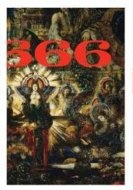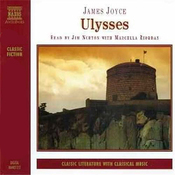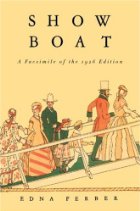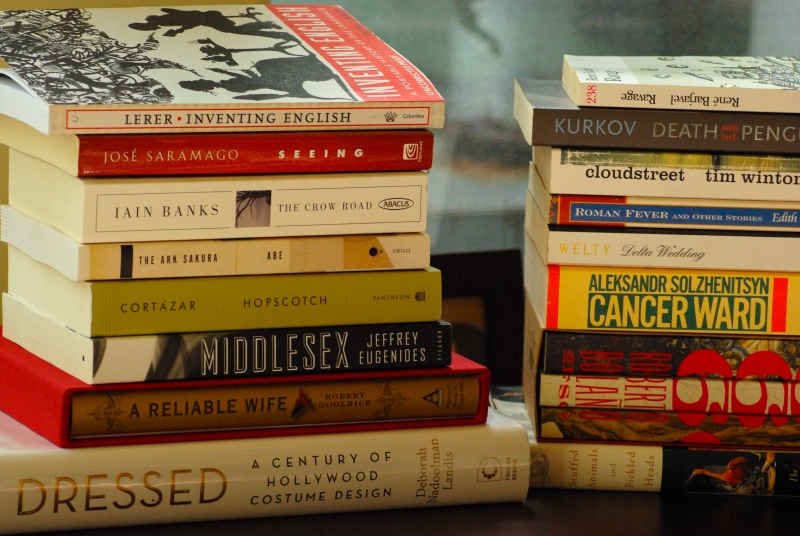
When the weather starts to warm and the sundresses emerge from the back closet, I, out of some perverse instinct, turn to cold-weather novels. I think I enjoy a contrast between my physical world and my literary one. The fjords of Norway, the dark winters of Siberia, polar expeditions and misty English moors all feature prominently in my summer reading picks. So when I received a special edition of Robert Goolrick's neo-gothic novel A Reliable Wife through Powell's Indiespensable program, I knew it would be an excellent way to kick off the summer months. Set in a rural Wisconsin town (with forays to Chicago and St. Louis) in 1904, the characters spend most of the novel socked in by snowdrifts, paralyzed and menaced by the extreme cold, which in turn reflects a certain inner frozenness they all share. You can get a sense of just how chilly Goolrick's novel is from the opening passage:
It was bitter cold, the air electric with all that had not happened yet. The world stood stock still, four o'clock dead on. Nothing moved anywhere, not a body, not a bird; for a split second there was only silence, there was only stillness. Figures stood frozen in the frozen land, men, women, and children....
It was not snowing yet, but it would be soon, a blizzard, by the smell of it. The land lay covered already in trampled snow.
The coldness of the landscape and the claustrophobia it induces are always present in A Reliable Wife, from the opening of the first chapter until Spring finally peeks over the edge of the horizon in the novel's closing pages. The small Wisconsin town that is home to Ralph Truitt, town tycoon and employer of almost everyone, and Catherine Land, his sinister new bride, who he first meets in the opening pages of the novel, is also host to regular eruptions of violent madness, brought on by the seemingly never-ending winter. Wives cut their husbands' throats and burn down their homes; men cut off their own limbs in fits of deranged fury. Goolrick effectively conjures a sense of danger, even malevolence, out of the frozen Wisconsin landscape, and to me this wrought atmosphere is one of the chief joys of the novel.
And it was one of several. A Reliable Wife is a definite page-turner, a quick and juicy read despite its themes of moral paralysis and slow murder. It's a novel on the old Dickensian mold - very plot and character-driven, which means I'm working hard to avoid spoilers. Even when I found the characters and events a bit over-the-top, and their secrets somewhat predictable (both of which are, I think, to be expected in the gothic genre), I was still riveted, wanting to know what would happen next. It's a good, old-fashioned (in most regards) story, which doesn't try too hard to be arty or ground-breaking, but delivers a satisfying tale in a well-crafted place and time.
One of my only reservations about the novel had to do with the characters. As with most Gothic fiction, A Reliable Wife is preoccupied with sexuality. In their different ways, the three main characters are all pathologically obsessed with sex - one out of a religious repression, one from a mercenary standpoint, and one as a mode of nihilistic escapism. There is a lot of sex in the book, which is great - I'm certainly no prude about sex in literature, and I love a well-written, well-integrated sex scene or five. I'm even a fan of the inclusion of a character whose sexual obsession plays off the more normally-socialized people around him or her. But to have all three main characters in the grips of different sexual obsessions simultaneously struck me as a little much. It dilutes the skewed-ness of any one of three warped world-views; since everyone in the novel is severely maladjusted around sex, skewed almost becomes the new normal. The reader is apt to forget the possibility of a sane, balanced attitude toward sex, as the actions and desires of the three characters veer wildly according to their respective neuroses. To me, the interactions between the characters would have been more compelling if just one of the three had been sexually well-adjusted, as it would have provided a foil for for the other two. On the other hand, it's possible that Goolrick is making a statement here about American sexual socialization at the turn of the twentieth century, and implying that the majority of the population ended up sexually dysfunctional because of it. Or, the moral ambiguity of the characters' sexual relationships could be an intentional rabbit-hole down which the reader must descend. For me, it was less than totally effective, but another reader may disagree.
(A somewhat dorky sex-related aside: I was impressed by Goolrick's research into Victorian beliefs about human reproduction, which is a subject of interest to me. At one point, when a woman is trying to convince herself that one man, and not another, is the father of her growing fetus, she asks herself "Hadn't he, when she first came home, made love to her while she was showing blood? She believed so." This is the opposite of what we now know, that women are most likely to conceive at the mid-point between menses. But Goolrick has got it right: up until the 1920's, doctors were telling women that they were most fertile during their periods. As Andrea Tone puts it, in her excellent book Devices and Desires: A History of Contraceptives in America:
Doctors assumed that the reproductive cycles of lower mammals and humans were the same. Knowing from observation that animals ovulated during estrus, they reasoned that women must ovulate during menstruation and be least fertile midway through the menstrual cycle. As one Michigan doctor instructed in 1881, a woman trying to prevent pregnancy should avoid 'having connection with her husband just before her menses,' for 'that is the time that nature evidently intended that conception should take place.'
Needless to say, such advice was frustrating for Victorian women who were trying to avoid pregnancy via the rhythm method. But in the context of A Reliable Wife, this small detail increased my ability to believe in the world Goolrick created.)
Despite a surfeit of sexual obsession, A Reliable Wife is thoroughly enjoyable, and ultimately more optimistic than many stories in the gothic genre, which I think is refreshing. I don't want to ruin any plot points, but I'd enjoy a conversation about the parallels between Catherine Land and another sinister literary Catherine, Steinbeck's Cathy (later Kate) Ames, from East of Eden. They share certain histories and certain specific behaviors, as well as a name, and I'm almost sure that Catherine is consciously intended as a descendant or re-telling of Cathy. But the trajectories of the two women do diverge at a significant point, which I think has repercussions not just for Catherine and Cathy, but for the grander capacity for human redemption in these two novels.
(A Reliable Wife was my fifth book for the What's in a Name? Challenge.)









